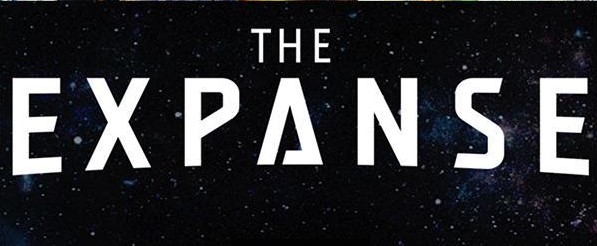The Expanse: A Recommendation

The logo for The Expanse.
February 20, 2020
When one hears the term ‘sci-fi’, a few franchises come to mind. Maybe it’s Star Wars. Other times, Alien, Terminator, or any other popular series with a large cult following. However, there is one sci-fi series that hasn’t been in the limelight. That series is The Expanse.
Contrary to what its name may suggest, The Expanse does not focus on humanity long after their establishment of galactic empires. Instead, the focus is on our solar system – primarily Earth, Mars, and the Belt. In this universe, humanity has created the Epstein Drive, a device capable of accelerating ships to high speeds – though still not anywhere near the speed of light. This conundrum has left humanity enclosed in the solar system for centuries, with rifts between every possible faction coming to a head all at once with the advent of (insert spoiler here). Earth is led by the United Nations, with some 30 billion people occupying the planet and a sizable amount of them on funding from the government. Mars has been working on a terraforming project for centuries, and any efforts not focused there are spent on the military.
The Belt is where The Expanse begins to get interesting. Due to the long-stagnant nature of the human race, people born in a zero-g environment have, for lack of a better term, evolved to adjust. Many of them are drastically taller than their Earthen counterparts, with a more limber physiology and enlarged heads. The series also very often speaks of psychological differences (a common one being that ‘Earthers’ can’t live without a definitive up or down). Further, ‘Belters’ have developed a political system of their own: the Outer Planets Alliance (commonly referred to simply as the OPA). The conflicts between the UN, the Martian government, and the OPA are the centerpiece for a majority of the series.
In the modern day, politics is often a touchy subject. Which is exactly why The Expanse focuses so much on it. In fact, the series often indulges in politics to an almost ludicrous extent. Any action that occurs has lasting repercussions throughout the series. James Holden, The Expanse’s main character, is usually the centerpiece of half the events happening at any one time purely because of this. Which brings me to how The Expanse treats perspectives on humanity.
Beginning with the contrasting viewpoints of Holden and Detective Miller in the first arc of The Expanse, the series tends to focus on the spread of information. Most times, Holden takes an optimistic view of mankind. He believes that, given all of the necessary information, people will naturally choose the correct course given enough time. Miller (and, for that matter, just about any other political figure in the series,) is just the opposite. He thinks that information is a bargaining chip, and that any actions taken from them should only be done by the people who know what they’re doing. Every arc of The Expanse has some iteration of this contrast in perspectives, and the dynamic changes those views have on the main cast have long-lasting consequences.
Putting aside the matter of The Expanse’s lore for a moment (I haven’t even gotten to the cultures and languages of The Belt), the series has quite a bit in the way of overall content. The main draw is, of course, the spaceship fighting and ‘hard sci-fi’ aspects, but there’s quite a bit more. Nearly all characters introduced have some part in the plot, and, even after their arc is over, they still appear every so often to impact events. The varying perspectives provide insights into the workings of primary characters and help to put an additional spin on both the physical and mental strains of any given situation.
For those unconvinced of The Expanse as a primary player in fantastic science-fiction, I would highly recommend at least experiencing the first arc – Leviathan Wakes in the novel series and the first season of the Amazon Prime exclusive streaming series. For spoiler reasons, I can’t say anything about other ‘political’ factions in the series, but the mystery they present is a very unique take on an old-fashioned sci-fi cliche. However, this unique mystery commonly takes a back seat to the various in-fighting of humanity, which is at times slightly frustrating.
The Expanse is a series that has tried to take the mantle of fantastic sci-fi. Whether it has succeeded or not is up for debate (primarily due to there being eight main-series novels at present, a slew of short stories, and only four seasons of the Amazon Prime series), but the amazing integration of political world-building, high-paced action, and personal character development all give The Expanse a uniqueness hard to find in the modern day.








